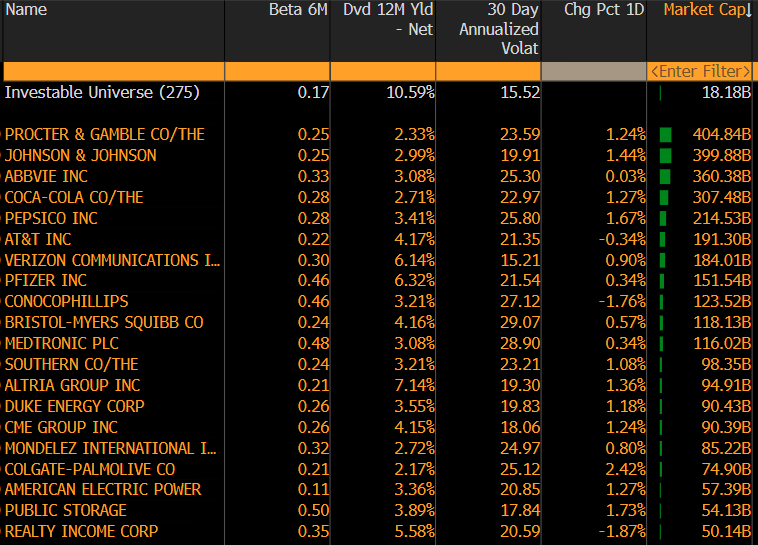Quarterly Outlook
Macro outlook: Trump 2.0: Can the US have its cake and eat it, too?
John J. Hardy
Global Head of Macro Strategy
Chief Investment Strategist
We talked about the risks of U.S. exceptionalism fading and the diluting Magnificent 7 leadership in previous articles. This is leading to a risk-off sentiment in global markets, and a rush to safe havens.
When markets get choppy, some investors reach for cash. Others look for the smoothest ride possible, and that’s where low-volatility stocks come in. These are companies with steady earnings, strong balance sheets, and a history of riding out economic turbulence better than the broader market.
That’s where low-volatility, high-dividend stocks come into play. These stocks tend to have low beta values, meaning they move less dramatically than the overall market, while also offering attractive dividend yields. This combination can provide both capital preservation and steady cash flow, making them an excellent option for defensive investors.
Volatility is often an investor’s worst enemy, especially during market downturns. Low-volatility stocks tend to hold their ground better, reducing overall portfolio risk. They are typically found in sectors such as utilities, consumer staples, and healthcare—industries where demand remains stable regardless of economic cycles.
A stock’s beta measures its sensitivity to market movements. A beta below 1 indicates lower volatility compared to the broader market, meaning these stocks tend to decline less in bear markets while still participating in bull markets, albeit to a lesser extent.
Dividend-paying stocks offer an additional layer of security by providing regular income, even during market downturns. Companies with strong, sustainable dividends often have healthy balance sheets, stable earnings, and a commitment to returning value to shareholders. High-yield stocks can help offset price declines and enhance total return over time.
We ran a defensive equity screener on Bloomberg, based on the following criterion:
Several standout stocks fit this defensive profile. Here are a few notable names grouped by sector:

Source: Bloomberg
For investors seeking a balance of risk management and income, a mix of low-volatility, high-dividend stocks can be a smart addition to a diversified portfolio. These stocks provide protection during market downturns while still generating returns through dividends.
While no investment is without risk, these stocks present a strong case for those looking to minimize volatility without sacrificing yield. By focusing on companies with stable cash flows and sustainable dividends, investors can create a more resilient portfolio in today’s uncertain market environment.